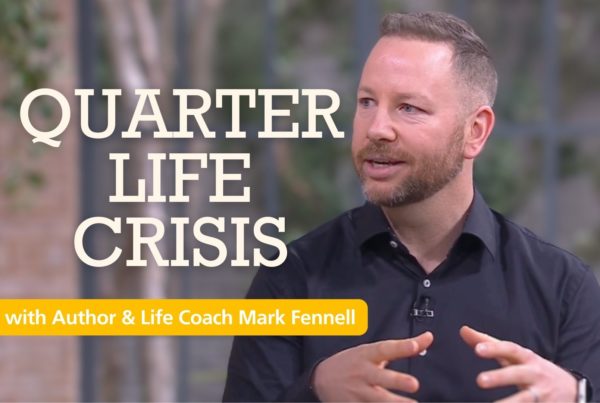Have you had a thought that you just could not shake? A memory from the past, or a situation that you keep replaying like a broken record? Have you had a thought that made you uncomfortable and you just could not stop it from coming along against your will? Here are the tools you need to help keep your mind in order and stop stinking thinking.
It takes practice if you’ve had them a long time, but don’t worry, you can do it. How to stop obsessive thoughts and habits:
1: Relaxation
With all we have in life, there can be little time to relax. That R&R time when we switch off and just chill out. Today a lot of people will say that watching TV will relax them, but TV isn’t the best way to switch off. It can keep you in the “go mode” depending on what it is you watch. I’m talking about no TV, but instead some quiet time. Yes I said “quiet time”. When was the last time you simply just relaxed by reading, soaking in a bath, a walk, or simply just lying down in silence. Now to some people these things are too hard because of the busy lives they lead, so silence doesn’t help them because they simply start thinking of all the stuff to do, or the obsessive thoughts they are trying to rid. So to relax you need to start by simply listening to easy music while you walk or soak in a bath. This will be where to start. Relaxing slows our thoughts down. It may even be a challenge at first but you will eventually learn the discipline of relaxing.
2: Exercise
People hate to hear the word exercise, but it does release those feel good chemicals when you do it. A simple walk, cycle, or swim will do the trick. Take up a sport of some kind, but whatever it is let it be enjoyable. Its a fact that exercise releases chemicals that make our bodies feel good. With that in mind its harder to think negative when you feel positive. Exercise also relieves stress in the body by loosening tension stored.
3: Float on by
When an unwanted thought comes along, even if its repetitive, just say to yourself “this is not of my concern, nor is it me thinking this thought” and let it float on by. Don’t start analysing it or trying to understand why, how, and where this came from, but instead see it and let it drift past as if you are on a ship and a piece of drift wood floated by. If you give a thought attention, you empower it, you feed it, you make it grow bigger. Thoughts are not to be feared for they are simply thoughts and nothing more. They have power if we give them power, so don’t feed negative fearful thoughts, don’t dwell on things you don’t like, but instead let them float on by.
4: Fear
A lot of unwanted thoughts are rooted in a fear of some sort. For example, people with OCD for washing hands is because they fear germs because they fear getting sick and dying. Their reasoning is if a germ gets on their hand it could become a disease, it could grow, and eventually kill them and those they love. There are many phobias and fears, but ultimately they may never come true. But even if they did, no need to worry about it till then. It is what it is, so why waste life in apprehension of what might happen, when in reality it may never happen. This is a real challenge for fear can seem very real.
When I was younger I developed a fear of flying. Afraid the plane might fall from the sky, or the doors would jam, or the air would run out inside the cabin. Eventually it was time for me to go on honeymoon, and our mode of transport, a plane, and was going to be a 15 hour flight. It freaked me out at the thoughts. I got tight in the chest and dizzy when people would mention anything to do with flying. I had even flown before. When the time came to fly I boarded the plane on the verge of having a panic attack but my wife was great. She never asked was I ok, for she knew the answer I would give, but instead she chatted as normal and this helped distract me. The plane took off and I said to myself, if the air runs out, or a terror attack, or whatever, I’m going to have an attitude of “SO WHAT”. There is nothing I can do about it so why worry about it. Today I love flying and it never bothered me again, there was more to it and it took time but that was it simply. There will be stuff like that in life but worry doesn’t help, it took me time to get over the fear, but I was determined, and so I faced my fear and it went away. We all worry at some time about real stuff, but there is no point in worrying about what hasn’t happened or may never happen. Like I’ve heard before FEAR stands for “False Evidence Appearing Real”.
5: Distract
Its like when you get a song in your head all day that you cannot shake. The best thing to do is play another song. The same is true for thoughts. So distract yourself with something that you enjoy, like putting on a film, listening to music, reading, or anything that you enjoy but gets your attention. Even doing a crossword works for some people. The point is get your mind off the worry and do something else. It may be difficult at first but be persistent. Get your thoughts active about something that stimulates you.
6: Change it don’t stop it
Many people take on the approach of trying to stop a thought. The reality is you can’t really stop a thought, but in fact you change a thought. Your mind likes to think all the time so why fight the process when you can have it work for you.
For example say you thought a fear like “What if I lose my job”. Well instead of examining and thinking down a long road of possible bad outcomes, I suggest you reply to the thought with, “Well even if I do lose my job, I can look for another, I’m skilled, losing my job is not the end of the world, I’ll survive no matter what, I will get over it”. This sort of response will cut off the negative track and bring you to a more positive outcome. You are simply diluting the negative with positive. The great thing is when you do this long enough your mind will then naturally tune into the positive a lot more quickly.
6: Discipline
If this thought or habit has been a part of your life for some time it will take time to change it. It will take hard grafting to catch the thought or habit each time it pops up. Don’t engage it but instead respond with a positive answer and let it float by. It will take discipline, but over time it will get easier and thats a fact. Successful people are disciplined people.
7: Don’t give up
You will have days when it seems worse than others, or days when you feel you aren’t making progress. Don’t give up, and instead focus on the advancement in the right direction. Focus on the little victories and you will get rid of that obsessive thought or habit eventually. Its only a thought so let it go and don’t give up.
8: Its good to talk
We may have a thought that we find hard to share it with somebody else. However it is a good thing to chat with somebody you love and trust. Tell them the thought and how it makes you feel. It must be somebody whom you know you can trust, it could be a doctor, friend, or spouse, either way talk to somebody for this can help with the healing process. Sometimes simply by saying the thought out can make you realise how silly it might be. I do stress in taking caution that you speak to somebody mature and with a good level head on life.
9: It happens everybody
Whatever the thought may be it important to note that everybody has thoughts they sometimes don’t like. Even when we sleep we can experience an unwanted nightmare. The difference is how we react to them. For whatever reason you have got caught with this broken record of a habit or thought, but take hope that you can move passed it and it will pass. But remember it will only pass when you begin to let it go.
10: Attitude
I can’t stress how a positive attitude helps. You may not have the solution but you can choose to have an attitude of hope. No matter how bad it gets, an attitude of I’ll get through this.
Final thought…lol
If obsessive thoughts or OCD is your struggle, know this, it’s not the end of the world. It may cause your anxiety levels to go through the roof, sleepless nights, loss of appetite, etc, but know that it is fixable, and that is the great thing. Many people go through stuff that isn’t fixable, but your situation is fixable. Find somebody to talk to, and if needed talk to your doctor for professional help. These blogs are just what I’ve seen from experience, so I hope it helps, I’m not a professional doctor or therapist, I’m just here to help. So whatever the case for you may be, it will pass and you’ll be a better and stronger person for it. If you want me to email you as I write on these topics, you can subscribe for free HERE by filling in your email address. Leave a comment or email me if you’d like more advice.





Thanks Mark for the excellent advice, there are some good nuggets in what you are saying. I like the simple and practical approach that you suggest but nonetheless i’m sure could be very effective when applied..It has urged me to stop and evaluate what’s going on in my life and I feel more positive already.I am going to take on board some of your suggestions.
Keep up the good work Mark , your blogs can be life changing for people especially in the times we live . Stay Blessed!!!!!
Hi Mark,
Thank you so much for posting this. It’s great to hear common sense and get reassurance that all is well.